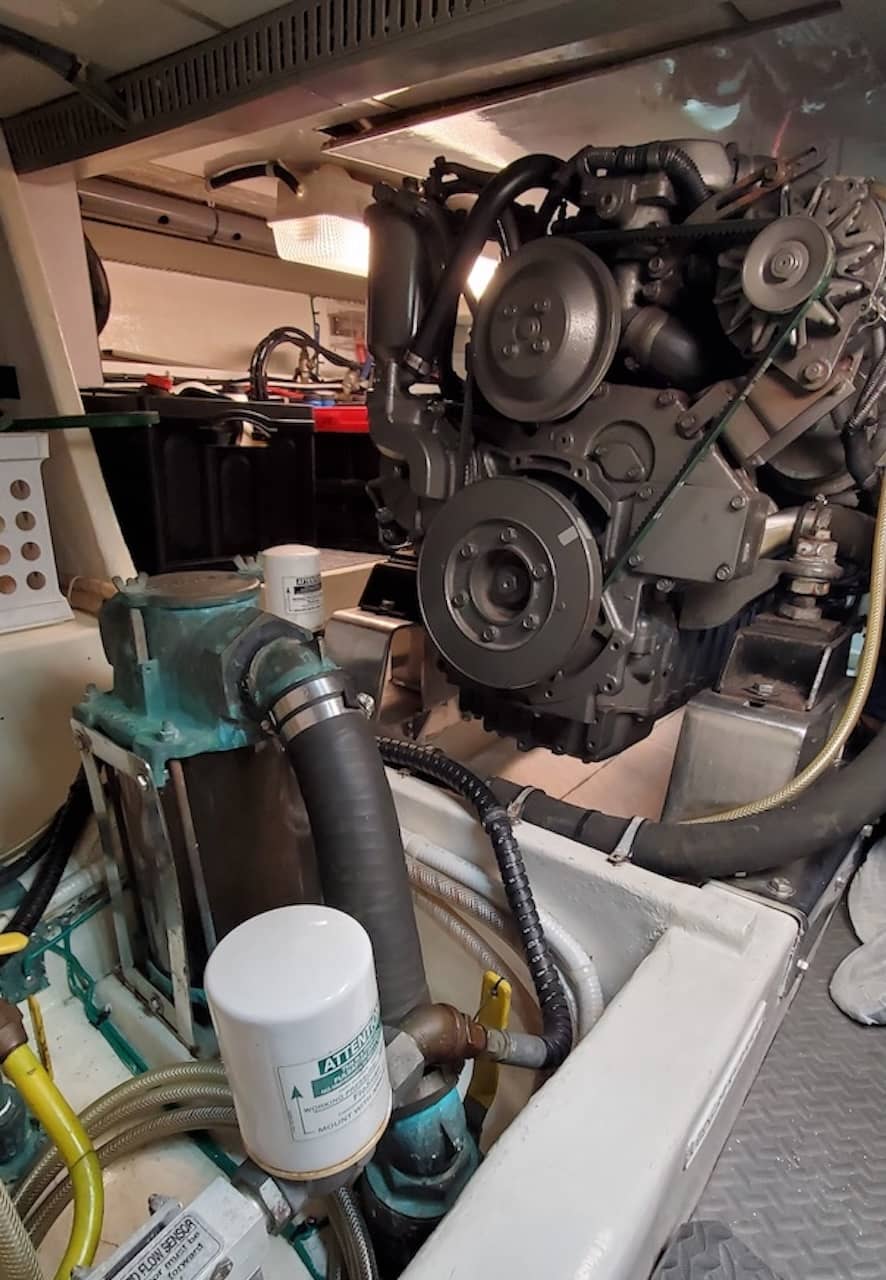Part of a yacht broker’s job is to ensure that the buyer and seller involved in a boat sale both get the value they’re looking for. Our job will take different paths depending on whether we’re representing the buyer or the seller. One thing those two paths have in common, however, is that the journey actually starts long before a surveyor is hired to evaluate a boat.
For this article, I spoke with fellow brokers at Latitude Yacht Brokerage, who offered the views that follow based on decades of experience. Here’s the kind of guidance you can expect from a good broker.
For Boat Sellers, Before the Survey
When representing a seller, it starts with the broker reviewing the boat with the owner and making recommendations on getting the boat ready for sale before posting a listing. Many things we recommend will be cosmetic: paint the engine mounts, clean the bilges, make sure the canvas is repaired, etc.
More importantly, what are the known electrical, mechanical, and structural issues with the boat? It’s a used boat, so there are ALWAYS issues. And these need to be addressed up front because they’re going to come up at survey anyway.
We talk with the owner about the nature and severity of the issues, and if they can be cost effectively addressed prior to listing the boat, we will usually encourage that. Much like a house, if you put money into repairs beforehand, you’ll almost always get that investment back and then some when the boat is sold.
One of my colleagues once worked with a buyer who went to survey with a 15-year-old production sailboat. The seller had disclosed on the listing that there were some “soft spots.” Once the survey began, however, things kept getting worse; more and more moisture and other problems were uncovered that the seller either didn’t know about or didn’t disclose. The buyer eventually backed out.
Two months later, with all issues disclosed in advance, my colleague sold the same boat to a different buyer. The point here for sellers is that full transparency on all issues doesn’t lessen a boat’s salability; it just changes who your buyer is. In this case, the buyer knew about the issues up front and chose to look at the boat anyway as they found them acceptable.

Seeking out a broker with special knowledge of a unique brand such as this model by Huckins Yachts can be super valuable.
For Boats Buyers, Before the Survey
That’s a nice segue to considering the buyer’s side. As brokers, it’s our job to listen to the buyer to understand what they’re looking for and based on that, set some expectations even before we consider a single boat. What class or type of boat are they looking for? Is the buyer considering a boat in the five-year-old range or a boat in the 20-year range? What is their budget? We know (or can find out) the known potential issues that boats in that class, age, and price range are known to have. If the boat is 5 years old, the expectations and potential issues will obviously be quite different than if the boat is 20 years old.
Another part of the journey before the surveyor is called involves proper investigation of the boat before you make an offer. Many buyers, driven by a good first visual impression, become smitten with a boat and tend to overlook or even skip part of their own evaluation.
I recently heard about a buyer (without a broker providing advice) looking at an older sailboat, on the hard and with the mast and sails in storage. The buyer was so impressed with the boat that they made an offer without looking at the rigging or sails—which the seller had assured them were in “good” condition. Then, of course, the buyer went to inspect them and found that the sails were frayed, the bolt rope broken, and the mast itself had been painted, including cleats and other rigging! Needless to say, the deal didn’t happen.
When you are a buyer, your broker will ask you to look at everything meaningful, to ask questions, and ensure there are no surprises before considering making an offer and hiring a surveyor.

A clean, freshly painted engine room and bilge says that a boat has been well-maintained.
Which Surveyor to Hire
Lastly, there is a school of thought that says, “Don’t use a surveyor provided by the seller.” In fact, don’t use a surveyor recommended by any broker. At Latitude, if a buyer asks, we will provide a list of surveyors we know and trust, but we will not recommend anyone specific. Sometimes, however, it may be useful to ask your broker for specific advice. We had a buyer interested in a Huckins, and one of our colleagues knew a surveyor who used to work for Huckins in production. He came to have a look at the boat and was able to get a look at the stringers in a way that no other surveyor would have known. He discovered that the stringers were significantly damaged and probably saved the buyer a few hundred thousand dollars! So, if it’s an uncommon or lesser-known model, it might pay to get more opinions on whom to use as a surveyor. (For more on surveys, read “Types of Marine Surveys.”)
Closing thoughts:
- Always get the boat surveyed before making any commitments. If she’s out of the water, spend the money to splash her and complete the in-water survey.
- If you’re a buyer, use a broker to help you find your boat. We are around boats every day and have the knowledge and network to find the boat that fits your needs. Plus, we don’t cost you anything as the buyer.
- If you’re a seller, a broker can help you best position the boat for an optimized selling price, and we can also bring you a buyer with realistic expectations.